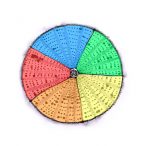“A decolonizing place of encounter between settlers and Indigenous people …
by making space for collective critical dialogue – a public remembering embedded in ethical testimonial, ceremonial, and commemorative practices” (Regan, 2010, p. 12). “This entails a public truth telling in which settlers link critical reflection, enlightened vision, and positive action to confront the settler problem head-on. Truth as an act of hope nurtures peaceful yet radical socio-political change that is the necessary foundation of reconciliation”
(Regan, 2010, p. 16).

Connecting with the Five Rs
-
Relevance: How is this lesson relevant to the Truth and Reconciliation Commission of Canada: Calls to Action?
-
Respect: How does this lesson acknowledge the impacts of settler-colonialism to Indigenous peoples and prioritize improved educational outcomes for Indigenous peoples?
-
Reciprocity: How is this lesson committed to truth telling and making space for collective critical dialogue?
-
Responsibility: How is this lesson rethinking practices and beliefs that influence what we teach and how we teach, allowing us to consider how we might better advance Indigenous ways of knowing in in educational spaces?
-
Relationships: How is this lesson providing opportunities to change and strengthen Indigenous-settler relations while addressing restitution and reparations for loss of land and Indigenous rights?
![]()


Learn More:
https://pdce.educ.ubc.ca/reconciliation/